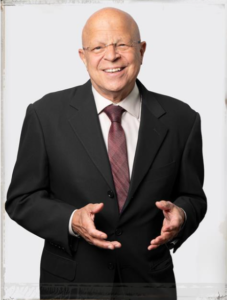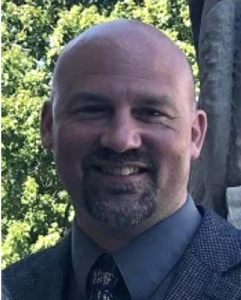A Conversation with Alan Beaman and his attorney
After 29 years, it’s time to talk
For nearly three decades, Alan Beaman’s comments on the wrongful conviction that sent him to
prison for 13 years have been restrained and carefully crafted.
On October 22, Beaman and his lawyer Jeffrey Urdangen will come to Illinois State University’s
Braden Auditorium to talk about the case that upended his life. The event is sponsored by the
Department of Politics and Government. I will moderate the 7 p.m. event that is free and open to
the public.
After Beaman had served more than 13 years in prison, the Illinois Supreme Court unanimously
ruled that the prosecutor violated Beaman’s right to due process of law by failing to disclose
information implicating another potential suspect in the murder. The McLean County Circuit
Court issued a certificate of innocence. Illinois Governor Pat Quinn then pardoned him based on
actual innocence.
Beaman filed a civil lawsuit against the Town of Normal and former detectives of the Normal
Police Department. Even though lower courts dismissed his case several times, the Illinois
Supreme Court ruled twice in Beaman’s favor finding that the case should proceed to jury trial.
Shortly before the case was set for trial, the Town of Normal and Beaman agreed to a $5.4
million settlement.
Dr. Joan Brehm, Chair of the Department of Sociology and Anthropology, one of the co-sponsors
of the event, commented, “Our department values fair, fair, compassionate, and equitable
systems of justice for everyone, and we hope that dialogues around Mr. Beaman’s case will help
to ensure those systems are in place for all people in the future.”
Settlement of the lawsuit erased the need for a jury trial on the malicious prosecution claims
Beaman filed against the town and the former officers. In past interviews, Beaman has shared
glimpses into how he survived more than a dozen years of his 50-year sentence, much of it
served in Illinois’ maximum security prison system. It was a brutal experience, one his lawyers
fully intended to share with jurors at a trial, before asking for a godzillion million dollars.
Jeffrey Urdangen has worked on Alan’s case for 28 years, through state and federal courts,
traveling from Chicago to rural courthouses where the case was briefly transferred, and to the
Illinois Supreme Court. To say he believed in Alan’s case wholeheartedly would be an
understatement. The pending litigation kept Alan’s longtime lawyer from being able to fully
express his thoughts and feelings about the case.
Alan also had the full support of his family, including his parents Carol and Barry Beaman.
From the moment police first turned their attention to Alan as a suspect, the Beamans put every
resource and prayer they could muster behind their son. The case has taken its toll on them, too.
In her comment noting that college campuses are places for debate on complex political and
social issues, Heather Dillaway, dean of the college of arts and sciences, said “this case is part of
ISU’s history, and we owe ourselves the chance to understand it fully.”
Other co-sponsors of the event include the Department of History, the School of Communication,
and the College of Arts and Sciences, along with the support and partnership of the School of
Social Work and WGLT.
Photo caption:
Jeffrey Urdangen
Alan Beaman


Connect with me